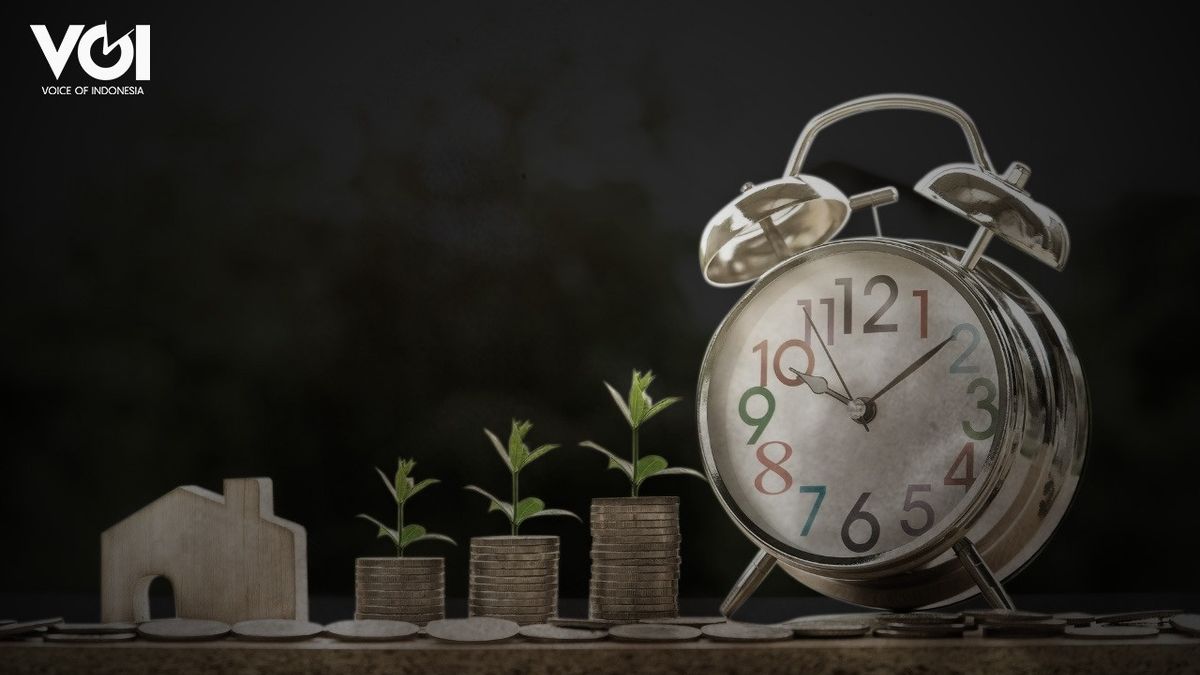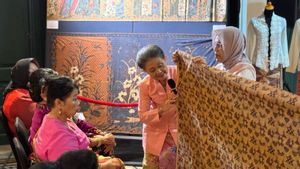Clothing, food, shelter. These three are the main needs in human life. Especially the last one has become an expensive item that is difficult to reach. In fact, for the younger generation, the dream of owning a house has become increasingly impossible. Back in Writing Series typical VOI. In this issue we will discuss dreams of owning a house and all the problems that surround it. Here it is, "When is the Board Established?"
The year that Sonya (28) has been waiting for has arrived. In a matter of months, this private employee belonging to the millennial generation will sit in the aisle. In order to tie a sacred promise with her lover, Sonya is willing to postpone one of the things she has wanted for so long: buying a house. Understandably, the cost of marriage is not cheap.
Even so, the desire to meet the needs of the board never goes down. If possible, aside from preparing for the wedding, Sonya still wants to make steps to realize her dream of buying a house. Just like most people who live in Jakarta, Sonya also dreams of owning a house in the capital city. However, he realized, realizing it was not an easy matter.
"Still saving for marriage, not being able to save to buy a house. Maybe next year, yes ... I want it (to buy a house) in Jakarta. But, the price is expensive. So, most looking for KPR (Home Ownership Credit). ), "Sonya told VOI, Thursday, January 30.
KPR is indeed the perfect solution to pursue the dream of owning a house that costs hundreds to billions. Without a KPR, this wish could just be a dream in broad daylight. However, unfortunately not everyone can pass KPR. It needs a good financial record and an income that meets the standard house prices proposed through the KPR scheme, of course. Sonya realized, it took physical and mental readiness to take the KPR route.
"It must be (heavy). Because, firstly, the administrative requirements, the two flowers are too big. And finally, the primary needs are sometimes more tempting," he said.
Sonya is not the only young person who has trouble buying a house. Hafiz (24), an employee of a fashion company in Jakarta also told us about his difficulties. In the eyes of Hafiz, buying a house with cash is impossible. Moreover, Hafiz insisted on buying a house not far from his family and workplace in Jakarta.
Therefore, currently Hafiz is studying KPR schemes in various banking institutions. "Cluster (house) prices are expensive. In Jakarta, the smallest size is on average above Rp. 600 million. Most of them are above Rp. Rp1 billion ... Preferably in residential areas. It's tired of playing in the village," he said, contacted by VOI.
Reachability
We understand the problems that both Sonya and Hafiz face. The 2018 Indonesian Millennial Generation Profile data made by the Central Statistics Agency (BPS) or the data from the Ministry of Women's Empowerment and Child Protection (Kemen PPPA) in 2017 both had the average wage or income of the millennial generation for one month recorded in the range of Rp. 15 millions.
In Jakarta, the dream of owning a house is farther from the fire. Data presentation on the Investment Potential of the Property Sector of the DKI Jakarta Government noted that since 2010, land prices in Jakarta have grown by 16 percent per year. Referring to other data held by the DKI Jakarta Provincial Government (Pemprov), it is noted that real wage increases in the Capital City only touch 10 percent per year.
"This imbalance makes house construction expensive in DKI Jakarta," the report said.
The more expensive land prices in Jakarta are directly proportional to the creeping price of houses. In fact, sales data from real estate consulting firm Cushman & Wakefield in 2016 noted that there were no lower middle-income houses in Jakarta. This means that underprivileged people, including millennials who pocket an average income, will find it increasingly difficult to buy a house in the capital.

Financial planner, Aidil Akbar Madjid agrees with the difficulty of owning a house in Jakarta. According to Aidil Akbar, an alternative that is still possible to reach is an apartment. As an illustration, the cheapest apartment prices currently range in the figure of IDR 350-400 million. If we still choose a house, we inevitably have to shift to buffer cities such as Tangerang, Bogor, Depok, or Bekasi.
"If the apartment is like that, (the price) of the house is definitely above that ... So you can still get it in Tangerang or Bekasi. But the location is almost an hour's train ride," he told VOI.
We are trying to simulate a plan to buy a house for Rp. 500 million in the Jakarta area. The way is, of course, by utilizing the KPR program. According to Aidil Akbar, to participate in the KPR program, we must at least set aside 20 to 30 percent of total income.
So, if we are going to buy a house for Rp. 500 million, it means that at least we have to prepare a down payment of Rp. 100 to Rp. 150 million. With that down payment, it means that we still have a debt of Rp. 350 to Rp. 400 million which must be paid in installments per month with a nominal value of at least Rp. 4 million. "If the installments are like that, it means that you have to have a minimum income of IDR 10-12 million," said Aidil.
Even so, income is not the main factor. Aidil said that millennial consumption patterns, which tend to spend money on buying experiences rather than assets, are also one of the key factors that make it difficult for millennials to have a home. "Most of them spend their money on traveling, for coffee, they accumulate experience rather than assets," said Aidil.
Generations ahead
Sonya and Hafiz are millennials. Both were born between 1980 and 2000. And the fact about the difficulty of buying a house above is a reality that their generation must face. Regarding the classification of generations, the term millennial was first coined by William Strauss and Neil in a book entitled Millennials Rising: The Next Great Generation (2000).
The term was coined in 1987, when 1982-born children entered preschool. At that time, the media called them a group connected to the new millennium when they graduated from high school in 2000. Elwood Caralson expressed another opinion in the book The Luck Few: Between the Greatest Generation and the Baby Boom (2008).
Elwood said that the millennial generation are those born in the range of 1983 to 2001. If it is based on Generation Theory which was coined by German sociologist Karl Mannheim in 1923, millennial generation are those born in the ratio of 1980 to 2000.
From within the country, Hasanuddin Ali and Lilik Purwandi explain the term millennial in the Millennial Nusantara (2017). Both of them explained that the millennial generation were those who were born between 1980 and 2000. So, with all opinions, we can conclude that the millennial generation are those who were born in the 1980s to 2000s.
If property prices continue to rise causing millennials to have trouble owning a home, what about Gen Z's fate in the next five to ten years in fulfilling their housing needs? Aidil said that it depends on how the z gene reflects on the millennial generation.
If gen z turns out to be better at managing finances than the millennial generation, then the opportunity to buy a house will open up. However, on the other hand, "if it turns out that generation Z follows the millennial generation who spends more money on traveling and so on, it could be even more difficult," said Aidil.
Apart from that, Aidil also added that, under normal conditions, the increase in property prices is higher than the increase in income. So, if it is not "forced", then the wish to have a dream home will not come true. If there is no effort to change the difficult situation of owning a house, then until whenever it will not change the status quo.
The reason is, according to the 2018 National Socio-Economic Survey (Susenas) in Jakarta, only 47.85 people own a house. While the rest are contracted. This means that those who do not have a home remain in the majority. The Ministry of Public Works and Public Housing (PUPR) may call the word millennial a generation that will have difficulty owning a home. However, in truth, this board problem will be experienced by many generations in the future. Millennial, gen z, or whomever they are labeled with.
Next Article: "Our Survey Reveals How Money Management Is a Problem for Youth Owning a Home"
The English, Chinese, Japanese, Arabic, and French versions are automatically generated by the AI. So there may still be inaccuracies in translating, please always see Indonesian as our main language. (system supported by DigitalSiber.id)













